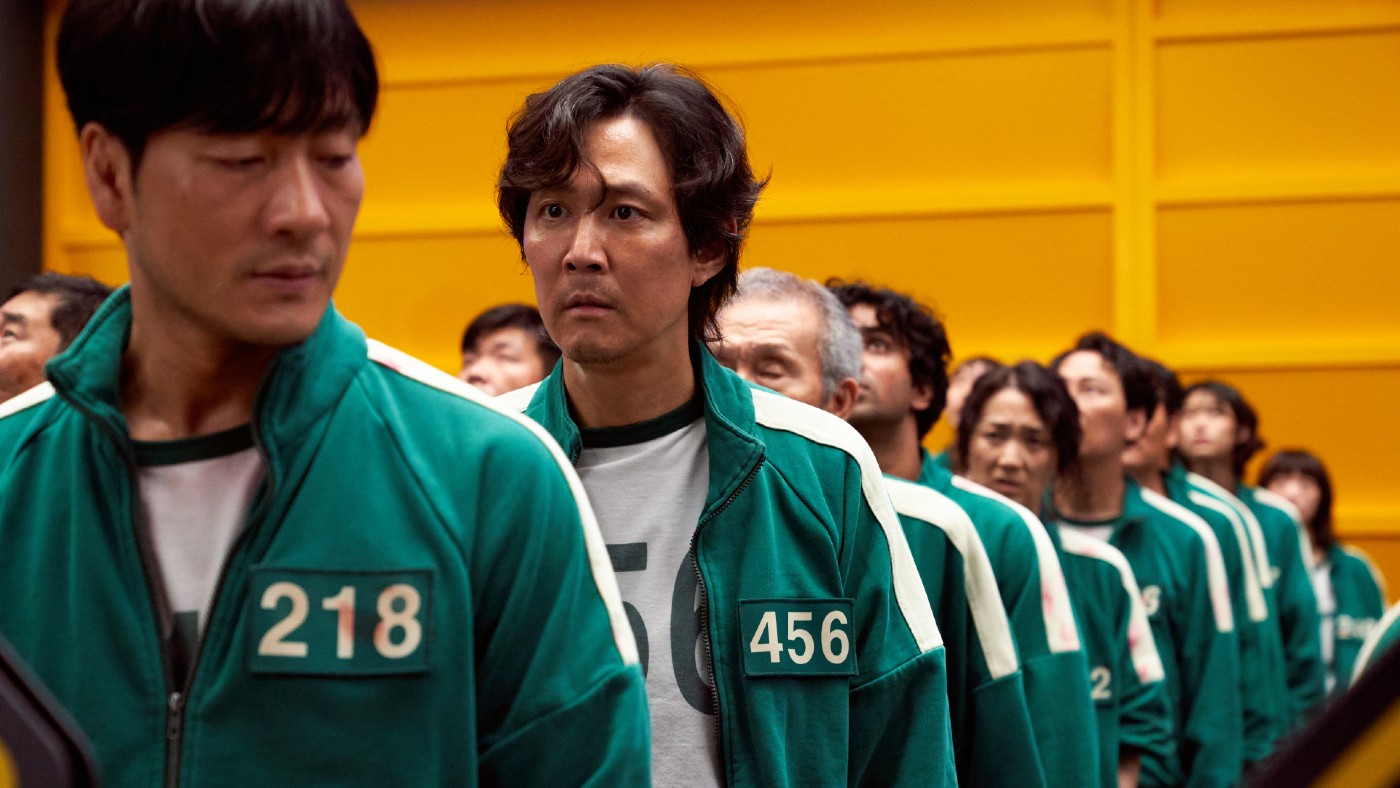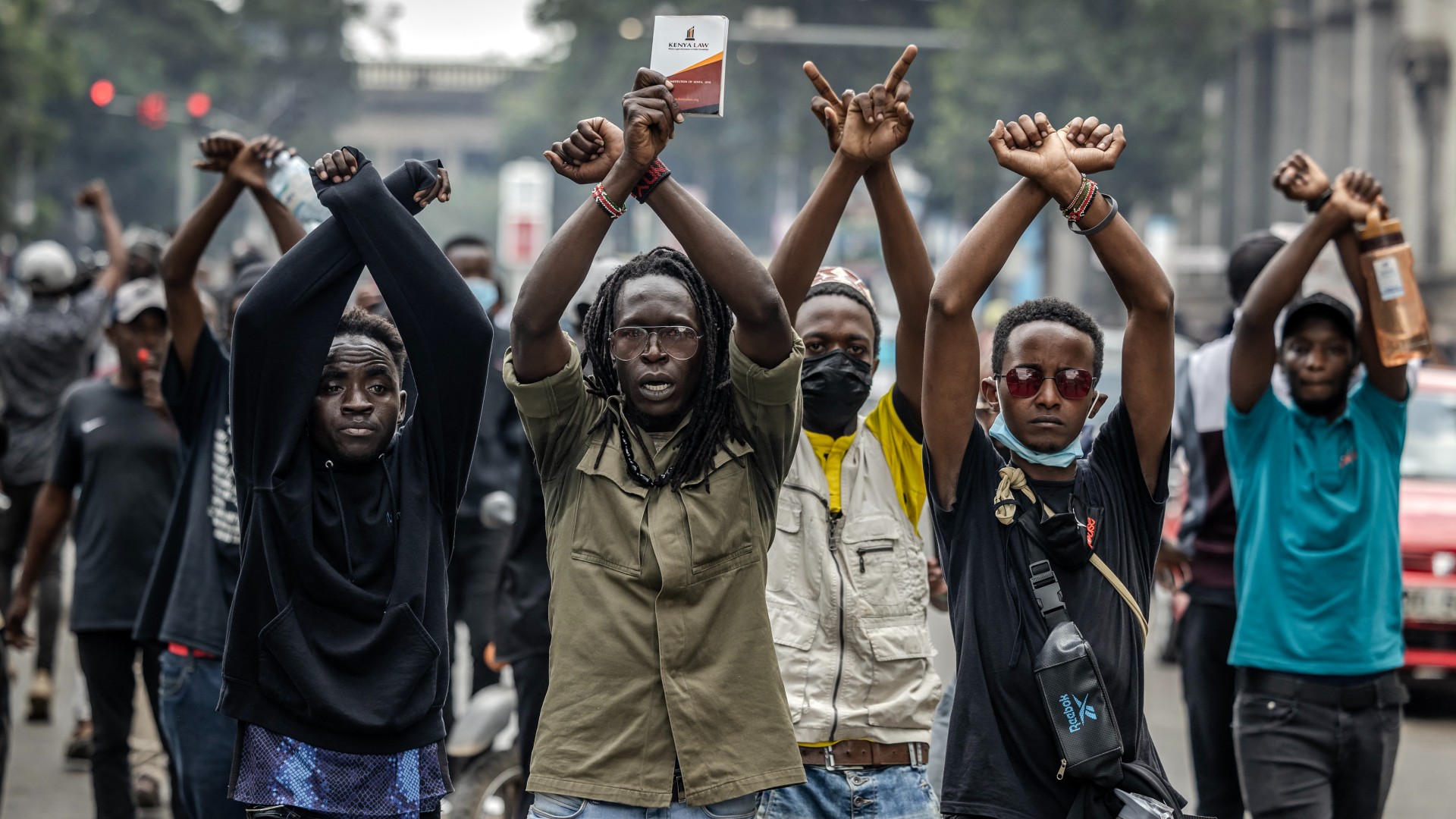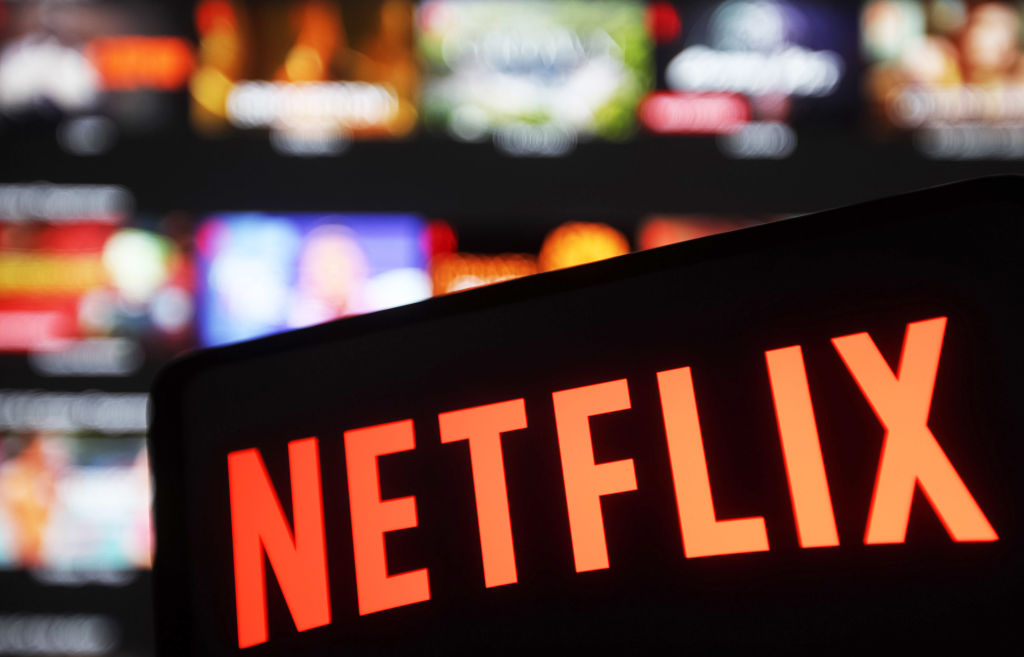Squid Games: the real-life crisis that inspired hit Netflix show
Brutal survival drama portrays fictional victims of South Korea’s soaring household debt

A free daily email with the biggest news stories of the day – and the best features from TheWeek.com
You are now subscribed
Your newsletter sign-up was successful
South Korean politicians are using the success of Netflix show Squid Game to put social inequality on the agenda ahead of next year’s presidential election.
The “hyper-violent South Korean thriller” is on its way to becoming Netflix’s most streamed show, reported The Telegraph, and “has been seized upon by the country’s politicians squabbling to be elected” as a means by which to discuss “an unequal society”.
The plot follows a group of poor Koreans who are pitted against one another in deadly challenges to win a cash prize. One election candidate has suggested that “a similar contest was going on between the country’s conservatives”, the paper continued.
The Week
Escape your echo chamber. Get the facts behind the news, plus analysis from multiple perspectives.

Sign up for The Week's Free Newsletters
From our morning news briefing to a weekly Good News Newsletter, get the best of The Week delivered directly to your inbox.
From our morning news briefing to a weekly Good News Newsletter, get the best of The Week delivered directly to your inbox.
Lee Jae-Myung, the governor of Gyeonggi Province and a candidate to stand for the centre-left Democratic Party, dubbed the election a “5 billion-won game”. This was a “thinly veiled reference” to a “controversy that the son of a conservative politician received 5 billion won (£3.2m) for leaving a junior position at an asset management company”.
The sum paid to the son of a right-wing lawmaker would typically be “awarded as severance to top executives leaving major companies”, The Washington Post said, prompting claims that the payment was instead a form of “bribe”.
The show’s plot has “resonated deeply with South Koreans frustrated with rising income inequality in one of Asia’s richest countries”, the paper continued. Areum Jeong, a Korean film expert at Sichuan University-Pittsburgh Institute, said that young people in South Korea “feel discouraged and pessimistic about the unemployment rate”.
Since its release in mid-September, “the series has been deployed as a metaphor by likely contenders in next March’s presidential election to attack each other”, the Post added, while “the public has used the show to talk about the brewing scandal”.
A free daily email with the biggest news stories of the day – and the best features from TheWeek.com
Huh Kyung-young, a politician who has previously stood on a populist platform, has “also used the show for his election campaign”, The Telegraph said, suggesting that he would “introduce a ‘game’ in its honour”.
He hinted that the “game” would see “South Koreans receive roughly £65,000 in a one off payment if he wins more than half the votes” next March.
“Squid Game is representative of the mind-set of Korean people today,” he said. “Ostracisation, devastation, precarity, enemies on every side. [The contestants] are in a position where they have no way out, and the last option seems to be Squid Game.”
Netlifx does not release viewing figures, so the exact number of people that have watched the show is unknown.
However, SK Broadband, a South Korean internet provider, is suing Netflix “to pay for costs from increased network traffic and maintenance work because of a surge of viewers”, according to Reuters.
A spokesperson for the company told the news agency that “Netflix’s data traffic handled by SK jumped 24 times from May 2018”. This prompted a Seoul court to say that Netflix should “reasonably” pay something in return to the internet service provider.
SK Broadband has claimed that the US streaming giant owes around “27.2 billion won [£17m]” for the spike in viewers during 2020, before Squid Game was available on the platform, Reuters added.
Netflix, however, has hit back, claiming that it “contributed to the creation of about 16,000 jobs in South Korea stemming from about 770 billion won [£480bn] in investments”.
-
 El Paso airspace closure tied to FAA-Pentagon standoff
El Paso airspace closure tied to FAA-Pentagon standoffSpeed Read The closure in the Texas border city stemmed from disagreements between the Federal Aviation Administration and Pentagon officials over drone-related tests
-
 Political cartoons for February 12
Political cartoons for February 12Cartoons Thursday's political cartoons include a Pam Bondi performance, Ghislaine Maxwell on tour, and ICE detention facilities
-
 Arcadia: Tom Stoppard’s ‘masterpiece’ makes a ‘triumphant’ return
Arcadia: Tom Stoppard’s ‘masterpiece’ makes a ‘triumphant’ returnThe Week Recommends Carrie Cracknell’s revival at the Old Vic ‘grips like a thriller’
-
 How will the Warner Bros. bidding war affect the entertainment industry?
How will the Warner Bros. bidding war affect the entertainment industry?Today’s Big Question Both Netflix and Paramount are trying to purchase the company
-
 Can Nigel Farage and Reform balance the books?
Can Nigel Farage and Reform balance the books?Today's Big Question Nigel Farage has, for the first time, ‘articulated something resembling a fiscal rule’ that he hopes will win over voters and the markets
-
 Why are Americans using 'buy now, pay later' apps to buy groceries?
Why are Americans using 'buy now, pay later' apps to buy groceries?Today's Big Question A 'layaway program, but reversed'
-
 Kenya unrest: a warning for Africa's future?
Kenya unrest: a warning for Africa's future?Today's Big Question Youth-led anger over unemployment, debt and corruption reflects tensions simmering across the continent
-
 Are streaming bundles reinventing cable TV?
Are streaming bundles reinventing cable TV?Today's Big Question The old-fashioned convenience of one service, one fee
-
 US debt ceiling: will Congress deadlock be broken?
US debt ceiling: will Congress deadlock be broken?Today's Big Question Political brinkmanship between President Biden and House Republicans could spell ‘economic calamity’
-
 Netflix co-CEO dubs Elon Musk the 'bravest, most creative person on the planet'
Netflix co-CEO dubs Elon Musk the 'bravest, most creative person on the planet'Speed Read
-
 Netflix adds 2.4 million subscribers, beating expectations for 3rd quarter
Netflix adds 2.4 million subscribers, beating expectations for 3rd quarterSpeed Read